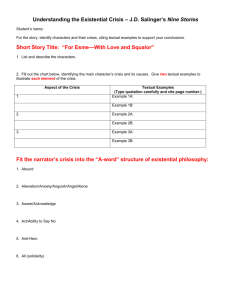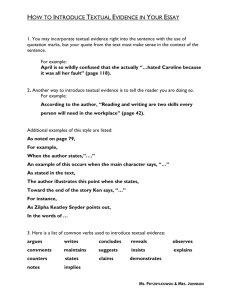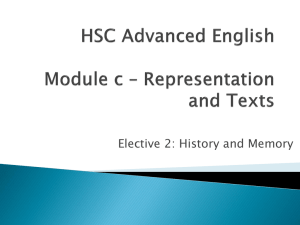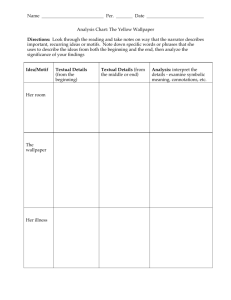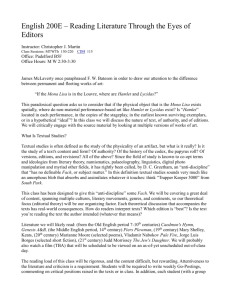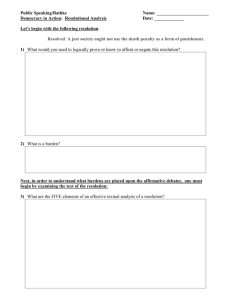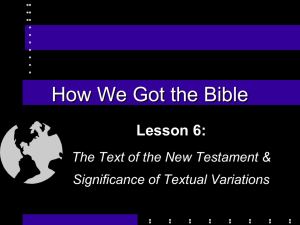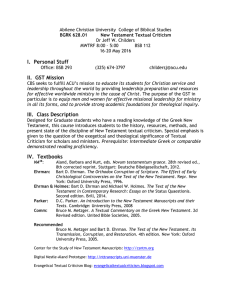Historical Narrative
advertisement
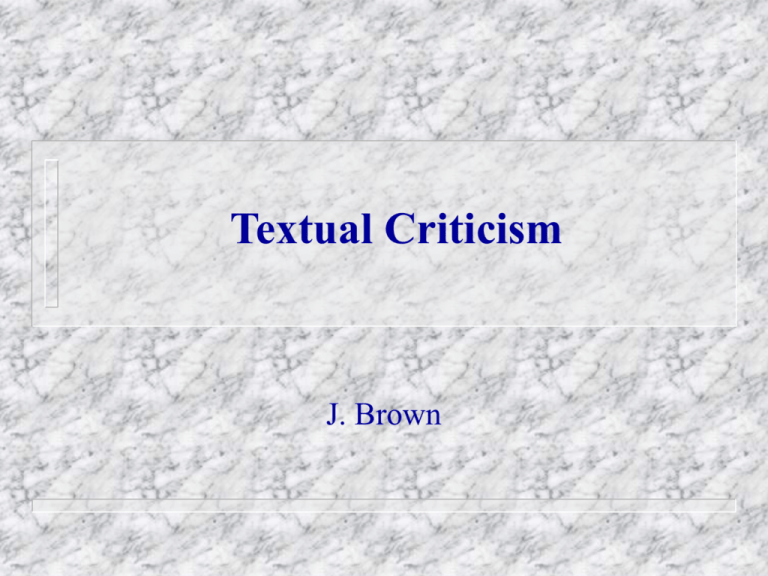
Textual Criticism J. Brown Textual Criticism 1. Definition: The discipline which attempts to reconstruct the original text (or wording) of a document. 2. Why is Textual Criticism necessary in biblical studies? We don’t possess the “autographs” (the original copies of the biblical books) We have variant copies (manuscripts); i.e. there were changes made during the course of the copying and recopying of the biblical text Textual Criticism: General Method 3. General Method: Comparing the various manuscripts and assess the variants on the basis of… a. External criteria (1) Readings from earlier manuscripts are more likely to be original than those from later manuscripts (2) Readings across a wider geographical area are more likely original (3) Readings that cross text types are more likely original Textual Criticism: Gen. Method (cont.) b. Internal criteria (1) Transcriptional Probabilities e.g., Shorter reading more likely to be original (since scribes tended to add words rather than omit words; exception: eye skip); e.g., More difficult reading more likely to be original (since scribes tended to make a reading easier rather than more difficult); Textual Criticism: Gen. Method (cont.) b. Internal criteria (cont.) (2) Authorial Probabilities Readings that fit with the author’s style, vocabulary, and theology are more likely to be original c. Fundamental Guideline for Assessing Variants: Which variant best explains the existence of the other variant(s)? Textual Criticism: Gen. Method (cont.) Example: Acts 6:8—“faith” or “grace” Acts 6:8 Stephen—“full of faith…” (KJV) -“full of grace…” (modern versions) Variants: External Evidence: 1. ‘grace’ p74, א, A, B, D and over 20 miniscules… 2. ‘faith’ Ha, Pa, many miniscules… 3. ‘grace and faith’ Ea 4. ‘faith and grace of the Spirit’ FF. Bruce Are the NT Documents Reliable? (pp. 19-20) “Fortunately, if the great number of manuscripts increases the number of scribal errors, it increases proportionately the means of correcting such errors, so that the margin of doubt left in the process of recovering the exact original wording is not so large as might be feared; it is in truth remarkably small. The variant readings about which any doubt remains among textual critics of the NT affect no material question of historical fact or of Christian faith and practice.”
